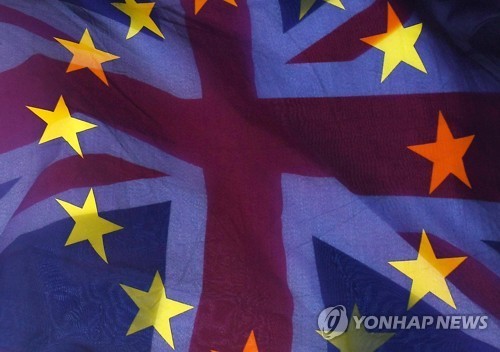The European Union cleared the way Friday for Brexit talks with Britain to move onto the second stage, which will involve wide-ranging _ and potentially far trickier _ discussions on their future relationship and trade.
The 27 leaders authorized the move, almost nine months after Britain triggered the two-year mechanism by which it will leave the bloc.
``EU leaders agree to move on to the second phase,'' EU chief Donald Tusk said on Twitter. Tusk, who is EU Council President, also congratulated British Prime Minister Theresa May in his tweet.
Since March, the EU side has been marked by a high degree of cohesion, which contrasts with the sometime-chaotic nature of Britain's approach. The coming talks could well test that cohesion in the EU, not least because of the divergent trading relationships the 27 remaining EU countries have with Britain.
Still, time is running out for Britain _ EU negotiators have said that an agreement has to be in place by October next year in order for it to get the requisite clearance from national parliaments in time for the actual day of Brexit in March, 2019.
To get to the second stage, Britain had to satisfy the EU on three issues.
 |
(Yonhap) |
At Friday's meeting, the leaders said Friday ``sufficient progress'' had been reached on the outstanding EU bill Britain will have to pay, the rights of citizens in each other's areas and the commitment to maintain a transparent border between Ireland and Northern Ireland.
Friday's clearance provides a welcome boost to May, who earlier this week lost a key parliamentary vote over giving lawmakers the final say on the Brexit deal.
May received a round of applause from EU leaders Thursday night after giving her assessment of progress in the talks.
European Commission President Jean-Claude Juncker said Friday that ``some of us thought, including me, that she did make big efforts and this has to be recognized.''
Malta's prime minister, Joseph Muscat, said ``there was appreciation from everyone,'' despite concerns in the EU about developments in London.
May's first priority in the next phase of talks is to establish a transition period, likely involving Britain remaining part of the single market and the customs union and probably lasting about two years. A transition period would ease Britain out of the EU and provide some certainty to business. Many British firms, particularly in the finance sector, have warned that they might put contingency plans in place soon that could involve them relocating activities into the EU.
During any transition, the EU is demanding that London should give up its seat at the leaders' table, lose all its lawmakers in the European Parliament and remove its judges from Europe's courts. However, it would still have to obey EU laws and respect the primacy of the European Court of Justice.
While sympathizing with May, leaders said they wanted the British prime minister to provide more details on what she is looking for both in the transition period and in the future relationship.
``We need a little bit more clarity from the U.K.; what type of relationship we shall be entering into,'' said Croatian Prime Minister Andrej Plenkovic.
``She is having to cope with all sorts of pressure,'' he said.
And Irish Prime Minister Leo Varadkar said ``lot of thinking'' needs to be done about future relations.
``There has been a lot of divergent thinking on what that should look like,'' he told reporters.
Varadkar held separate talks with May overnight ``to compare notes,'' and he said they would meet again early in the new year.
When asked about the chances that Britain might not leave in 2019 as planned, most leaders said only that this should be up to the British people and parliament. (AP)







![[Today’s K-pop] Blackpink’s Jennie, Lisa invited to Coachella as solo acts](http://res.heraldm.com/phpwas/restmb_idxmake.php?idx=644&simg=/content/image/2024/11/21/20241121050099_0.jpg)
